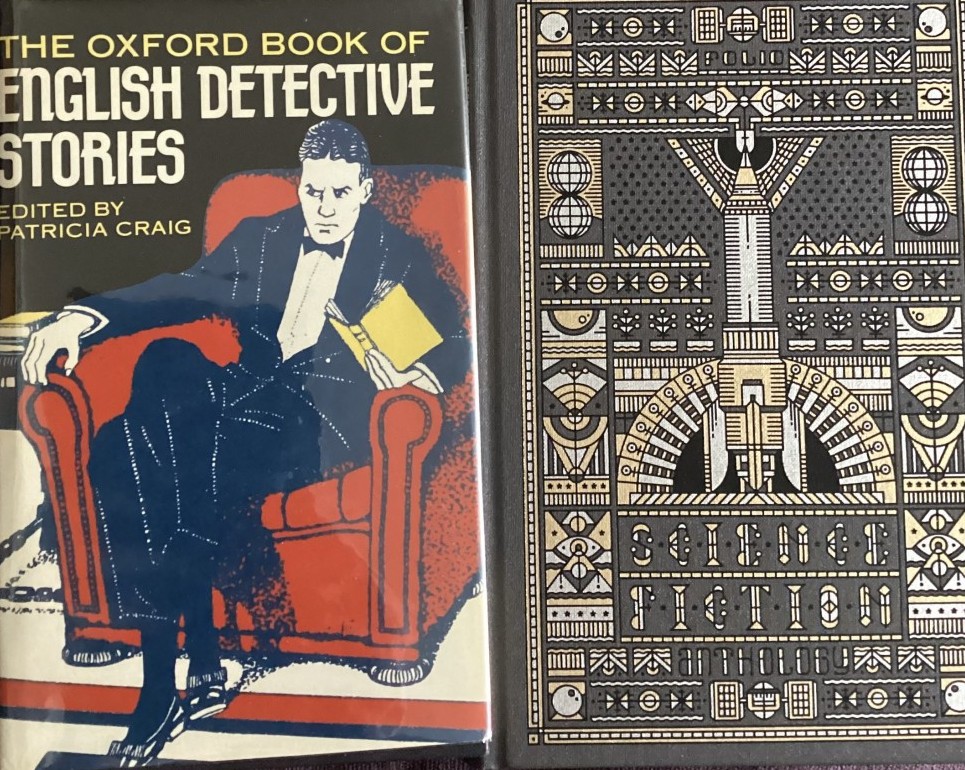Inspiring Older Readers
 posted on 13 Mar 2024
posted on 13 Mar 2024
Good anthologies: a new pleasure
Ever since I started reading with real intent, I’ve shied away from anthologies. I think there are a number of reasons for this – some more rational than others. Let’s start with the ubiquitous anthologies of poetry and prose that seemed to follow me through my school days. Obviously, they must have seemed a godsend to teachers who wanted bite-sized lumps of literature to give us to read in class or as homework but to me as a rather reluctant pupil, these anthologies just seemed like an unwelcoming jumble of styles and content. Stuffed in my school bag, they simply represented a depressing extension of the school day rather than a relaxing recreational read.
When I finally made it to university to read English, the clear, if unspoken, message was that anthologies were the food of the lazy and uncommitted. Poems, extracts, short stories taken out of their proper context were not the reading matter for the student bent on ‘a good degree’ – an authentic understanding of an author required thorough reading of their work within their overall canon. In truth and in fairness to my (now mostly dead tutors), nobody ever said that to us.
Later when working in a bookshop and then becoming an acquisitive reader, anthologies just seemed to be carrying the mark of Cain as far as I was concerned. Quite often, I think, they didn’t help themselves because far too many were lazily compiled – clearly hobbled by copyright laws and so frequently including the same material over and over again. It felt to me that it was the destiny of some authors to exist almost only in anthologised form – a rather depressing sort of life in death.
And so, it’s gone for me until the past couple of years when I’ve found myself reassessing the value of anthologies – and the discovery (which most of you will find screamingly obvious and wonder why it took me so long to get there) that not all anthologies are equal in their value or intent. What I’ve come to like is that good, well-edited, well curated anthologies that dedicate themselves to enriching your understanding of genre – crime, science fiction, horror, humour etc. – can be a window for you on authors that you’re unlikely to encounter otherwise.
Two anthologies that I’ve enjoyed grazing over in the past couple of months also demonstrate the very different approach that can be taken by the compiling editor when it comes to putting a good anthology together. The Oxford Book of English Detective Stories is edited by the Irish literary critic, Patricia Craig. Her approach is almost what you’d call studious – she seeks to put together a chronologically representative sample of the crime story as it developed historically and split into its different branches and sub-genres. Her lengthy introductory foreword explains this in some detail and acts a guide for the reader. There are plenty of very familiar names here but I felt no real need to revisit those – it was the names I’d never heard of that I homed-in on and now I’m armed with some names whose wider body of work I’d be interested in exploring further.
The second anthology – The Folio Society Science Fiction Anthology – is a good example of the alternative way of compiling an interesting collection of tales. Here, science fiction author, Brian W. Aldiss has gone for a selection of his personal favourites – although he, like Craig, still sticks to the chronological format. Again, there’s an informative foreword but its clear Aldiss isn’t really interested in scholarly pursuit – this is all about what turned him into the writer he became. As with the previous example, it’s the unknown names that are the real spice in this collection.
So you can say that I’m now a bit of a convert to the anthology – but always with the caveat that it has to be a top-rate one that’s been in the hands of an anthologist who understands the skill demanded of their undertaking.
Terry Potter
March 2024